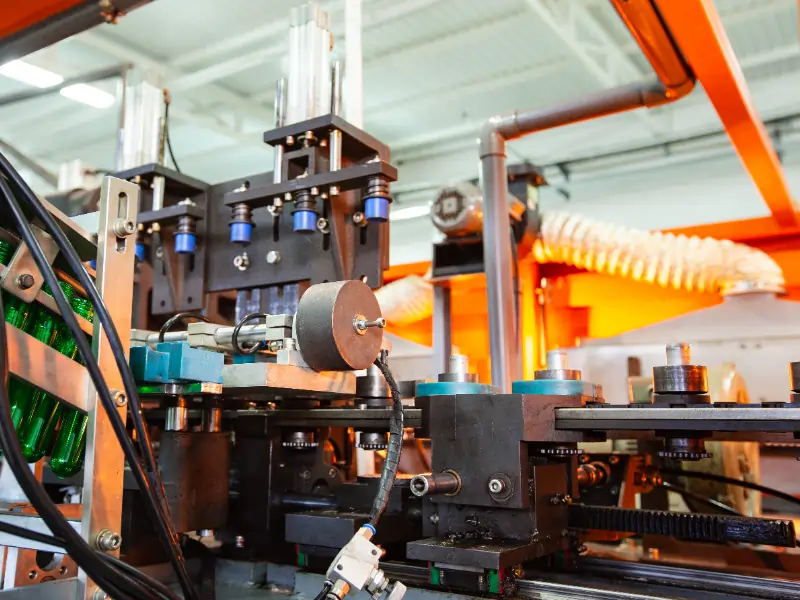In today’s fast-paced manufacturing environment, achieving streamlined production processes is essential for gaining and maintaining a competitive edge.
Using a strong, dedicated manufacturing ERP system like DELMIAWorks can change the game for manufacturers.
It helps them improve their operations, enhance product quality, and make smart decisions with real-time data.
This article will explore the benefits of DELMIAWorks and provide actionable strategies for its successful implementation.
Understanding DELMIAWorks and its Role in Manufacturing
DELMIAWorks is a comprehensive manufacturing ERP solution designed to meet the specific needs of process manufacturers.
It provides many modules essential for effective manufacturing processes. These include:
- Inventory & warehouse management
- Production scheduling & planning
- Quality management & control
- Real-time monitoring of production and processes.
By integrating these capabilities into your business, DELMIAWorks enables manufacturers to achieve greater efficiency and control over their production processes.
Find more information on the features in DELMIAWorks ERP system here.
The importance of Real-Time Process Monitoring
One key feature of DELMIAWorks is its ability to monitor processes and production in real time. This is often called an MES System.
This capability allows manufacturers to track production activities as they happen, enabling them to identify bottlenecks, minimize downtime, and optimise resource allocation.
Real-time data helps decision-makers react quickly to changes in production. This keeps operations running smoothly and efficiently.
If a machine in the production line breaks down, real-time monitoring can alert operators and managers right away. This helps them fix the problem before it gets worse and causes big delays.
Implementing DELMIAWorks ERP for maximum efficiency
Integrating DELMIAWorks into your manufacturing operations requires careful planning and execution.
Here are some steps to ensure a successful ERP implementation:
1. Define your objectives
Before using DELMIAWorks (or any ERP system), it is important to set clear goals for what you want to achieve.
This could include reducing production costs, improving quality control, or improving supply chain visibility.
By having specific goals in mind, you can tailor the ERP system to meet your unique needs and measure its success effectively.
Seems obvious doesn’t it, but this is often a stage manufacturers we speak to miss or poorly define.
2. Conduct a needs assessment
Perform a comprehensive needs assessment to identify the gaps in your current processes and determine how DELMIAWorks can address them.
This assessment should involve key stakeholders from different departments to ensure that all perspectives are considered.
Understanding your organisation’s specific requirements will help you configure the ERP system to deliver maximum benefits.
3. Plan for change management
Implementing an ERP system involves significant changes to existing workflows and processes.
To facilitate a smooth transition, develop a change management plan that includes training for employees, communication strategies, developing (or changing) processes and procedures as well as introducing effective support mechanisms.
Ensuring that your team is well-prepared and informed about the new system will increase their buy-in and reduce resistance to change.
4. Customise the ERP System
DELMIAWorks is highly customisable, allowing you to adapt it to your organisation’s unique processes and requirements.
Work closely with your Proximity Enterprise Solutions ERP implementation specialist. They will help you set up the system to meet your business goals.
Customisations can include setting up workflows, defining user roles, and integrating with other software your organisation uses.
5. Test, Refine and Test Again
Before fully deploying DELMIAWorks, conduct thorough testing to ensure that it functions as expected.
This phase helps you find and fix any problems that may come up. This ensures a smooth transition when the system starts.
Testing should involve end-users who can provide valuable feedback on the system’s usability and effectiveness.
Using DELMIAWorks for Enhanced Operational Efficiency
Once DELMIAWorks is successfully implemented, manufacturers can use its capabilities to achieve enhanced operational efficiency.
Here’s how:
Streamlined Production Scheduling
DELMIAWorks provides advanced tools for production scheduling and planning. These tools help manufacturers improve their production plans using real-time data and demand forecasts.
This ensures that resources are allocated efficiently, reducing lead times and minimizing production costs.
Improved Quality Control
With DELMIAWorks, manufacturers can implement robust quality control measures that ensure products meet the highest standards.
The system allows for real-time quality monitoring, enabling quick identification and resolution of defects or deviations from specifications.
This not only enhances product quality but also reduces waste and rework.
Enhanced Supply Chain Visibility
DELMIAWorks provides comprehensive visibility into the entire supply chain, allowing manufacturers to track inventory levels, manage supplier relationships, and optimize procurement processes.
This transparency makes sure materials are ready when needed. This reduces the chance of production delays and improves supply chain efficiency.
Real-World Success Stories

Many manufacturers have successfully integrated DELMIAWorks to achieve significant improvements in their operations.
For example, Nissen Chemitec, a leading automotive parts manufacturer implemented DELMIAWorks to streamline their production processes, improve quality control and win new business.
As a result, they not only reduced production lead times and decreased defect rates, they also reduced monthly EDI costs. These improvements helped Nissen Chemitic to increase customer satisfaction and profitability.
Conclusion
Integrating DELMIAWorks into your manufacturing operations can change how you manage production. It can help improve quality and allow you to make informed decisions using real-time data.
By following the steps in this article, you can achieve a successful ERP implementation. This will bring real benefits to your organisation.
Contact us today to learn about the power of DELMIAWorks ERP. Take your manufacturing operations to the next level of efficiency and competitiveness.




